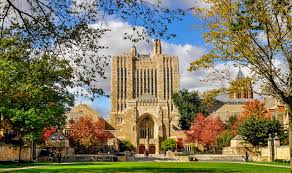
This year, perhaps more than any other, may feel as though we are being swept along with falling leaves towards an unpredictable winter. This seasonal shift begins on November 1 with the ending of Daylight Savings Time, when we turn the clocks back and “fall behind”, leading to less daylight in the evenings. For some of us, this can lead to Seasonal Affective Disorder (SAD), a fairly common type of depression that comes and goes with the seasons, typically starting in the late fall and early winter and ending in spring or summer, according to the National Institute of Mental Health. Some of the symptoms are loss of interest in usual activities, feeling sad, anxious or helpless, changes in weight or sleeping patterns. For a full list of symptoms and more detailed information or how to get help, refer to Magellan Health.
Being aware that this is a real phenomenon that affects many people living in the northern hemisphere, we can include ways to mitigate the effects of SAD into our winter self-care plans. Magellan Health recommends basic practices that will probably sound familiar but are very important, nonetheless, such as:
- aiming for enough sleep
- eating as healthfully as possible
- incorporating regular movement and enjoyable activities
- not turning to drugs or alcohol
- talking with family or friends about how you’re feeling
And remembering that as Mental Health First Aid teaches us, sometimes, it’s okay to not be okay - and how to respond when someone else shares with us that they are not okay. The most important part of the response is listening non-judgementally and encouraging appropriate resources and help.
The next seasonal event is the Precedential Election on November 3, which during the era of COVID-19, is predicted to be what election officials are calling an ‘election season’ due to the extra time needed to count mail-in ballots. This time extension, for many, will also extend the tension and stress associated with it. Creating an Election Day Self-care Plan may help. Practices such as limiting media consumption, steering conversations with family and friends towards other topics, setting boundaries, and getting outside (and away from tech) as much as possible before and after the election can be helpful.
Then as we navigate these uncharted waters towards the end of November, towards a Thanksgiving holiday that will probably be quite different for most of us, wrestling with the longing to see family and friends, but weighing serious concerns about indoor safety due to the potential spread of COVID-19 and seasonal colds and flu. We are no longer able to rely on meeting more safely at spacious outdoor settings, like parks, and this presents us with a now all-too-familiar decision reminiscent of the past spring. The Centers for Disease Control and Prevention (CDC) provides some holiday guidelines to help with the decision making process.
To help us with our self-care around food, Being Well at Yale is sponsoring two online workshops in November by experts in their respective fields; Mindful Eating for Better Health with Anne Dutton, LCSW, Director of Mindfulness Education at the Yale Stress Center, and Avoiding Holiday Weight Gain with Becky Purcell, MS, Registered Dietitian with Being Well at Yale. And just before the Thanksgiving break, Danielle Casioppo, MS, Education Specialist, Certified Mental Health First Aid instructor and Mindfulness-Based Strengths Practice leader, will share practical tips on Supporting Resiliency through the Strengths of Hope and Gratitude - just in time for this uniquely challenging holiday season - and very likely well beyond.
Other practices like yoga and meditation may be helpful resources for self-care as well. And for those looking for the additional benefit of practicing with a group online, Being Well at Yale offers Rise and Shine! Mindful Movement in the Morning and the afternoon Yale Community Drop-in Meditation sessions. Both programs are ongoing throughout the academic year, open to all Yale Affiliates, and always free of charge.
We can start our seasonal self-care, and that of our families, off right by getting the flu vaccine as experts predict it will be even more crucial this year. Yale Health provides full information for members, faculty, students and staff on how to get a vaccine on or off campus.
These are just some of the reasons starting seasonal self-care sooner this year is essential. After all, our self-care is not only how we care for ourselves, but how we ensure that we are able to care for others. As the saying goes, we ‘cannot pour from an empty cup’. What will you do today to help fill your cup?